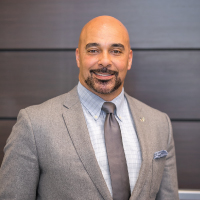
15 Dec Careers4All: College or No College Philosophies are Dream Killers
In The Know: Updates from the President’s Desk
Vol. 1, Issue 10
Skilled labor shortages and increased demand for talent are growing; resulting in a struggle for leadership within our workforce and educational development systems to identify innovative ways to meet industry demands. At the same time, growing gaps in wealth between social classes and the fear of a shrinking middle class have inspired many educators and advocates for the poor to support college is not for everyone or college ready ideologies. While there’s nothing new about these perspectives or the actual lives of working people who attend or don’t attend college, they’re two simple notions that reinforce our social hierarchies, fail to meet skilled labor demands and suppress the dreams and exposure of young people to career possibilities.
Everyone can be prepared for skills-based careers and entrepreneurial opportunities with transparent pathways for individual growth. To accomplish this, and align with economic demands, we must adopt what Charlotte Works refers to as a “Careers4All” philosophy.
To Be or Not to Be College Ready is the Wrong Question
College ready or college is not for everyone philosophies are oversimplified perspectives that unwittingly lack an in-depth view of talent pipeline development, stackable credentials and skills essential to individual career pathways. Instead, we should focus on developing skills that align with industry needs and creating credentials for K-12 and post-secondary education focusing on career readiness, regardless if they’re on a four-year college or non-degree path. The findings of a PayScale study revealed employers believed only 50 percent of graduates were prepared with the hard and soft skills needed for employment. While 87 percent of graduates felt they were “well prepared,” the obvious gap in perceptions make a greater case for skills-based training and hiring practices more evident.
Industries vary in the types of skills and credentials needed from a diverse workforce. For example, Microsoft recently invested $25 million in Skillful, a program designed to enhance skills-based hiring in the tech industry. More than 80 percent of job postings in the tech industry require a bachelor’s degree or higher. While Microsoft’s investment shows a desire for greater industry alignment of skills-based preparation and credentialing, the access to educational experiences vary across social classes and further complicates talent pipeline development.
Reinforcing Social Hierarchies and Limiting Talent
Access to skills-based education and hiring in high-demand industries are often segregated based on social categories like race and class. Segregation of our talent pipeline leads to the underdevelopment of our workforce and reinforces social and economic hierarchies. According to the Council for Opportunity in Education (COE), 79 percent of students born into the top income families obtain a college degree from four-year institutions compared to only 11 percent of those born in the bottom incomes. These disparities increase when factors of race enter the equation.
High demand industries in North Carolina like information technology and construction require 89 percent and 54 percent of their job postings, respectively, to have a bachelor’s degree or higher, making lack of access to skills-based education for large parts of our population partly to blame for our labor shortages.* Georgetown University Center on Education and the Workforce cites that better-paying jobs requiring at least an associate degree have increased to 30 million and 36 million for those with a bachelor’s degree or higher. In other words, access to some college or post-secondary credentials is important now and for future talent development. Access to education and desegregation of our talent pipeline beginning in grade school through actual career placement make our economy more globally competitive and resistant to vast labor shortages.
Careers4All: A New Paradigm
College ready or college is not for everyone philosophies and practices lead to further segregation of our workforce and fail to address the skills-based needs of industry. As a nationally recognized workforce board and aligner of our local workforce system, Charlotte Works has adopted a Careers4All agenda that emphasizes inclusion and firm career pathway development strategies. We must:
- ensure youth and young adults have educational experiences that prepare them for skills-based employment. This includes increasing the number of youth who gain industry-recognized credentials; greater industry participation in curriculum development; and career pathway training for teachers and youth service providers.
- provide potential employees with skills-based credentials that meet employer needs. Stackable credential approaches are necessary so that employees earn higher wages as they learn new skills and earn credentials that allow them to climb the career ladder.
- align economic development, employers, workforce development, education and service providers around shared goals and metrics to allow communities to develop stronger career pathways for residents.
- create stronger private and public partnerships to provide greater resources to a skills-based workforce system.
A Careers4All approach creates a greater development and use of human capital regardless of social class. It also provides a greater potential for industry alignment that meets the needs of local employers in a skills-based job market. Most importantly, it seeks to use the dreams of diverse populations and develop a skilled workforce that makes our region more globally competitive. These are goals we all can share.
*Source: JobsEQ, 2017


